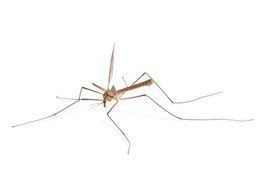
The WHO is concerned that in the South East Asia region the malaria parasite is becoming resistant to some of the drugs that have helped make progress
Singapore: On World Malaria Day, April 25, the WHO recognized significant accomplishments made in preventing and controlling malaria in high-burden countries in sub-Saharan Africa. The WHO also reiterated its focuss on the threat of antimalarial drug resistance in South East Asia's Greater Mekong subregion, where an emergency response is now being launched.
"In recent years, endemic countries, including countries in sub-Saharan Africa, have made major headway in reducing new cases and deaths from malaria," said Dr Hiroki Nakatani, WHO's assistant director general for HIV, TB, Malaria and neglected tropical diseases. "But that progress could now be at risk. We are increasingly concerned by signs in the South East Asia region that the malaria parasite is becoming resistant to some of the drugs that have helped make so much progress."
The treatment of choice is artemisinin-based combination therapies (ACTs). Resistance to artemisinins, the core component of the combination, has now been identified in Cambodia, Myanmar, Thailand, and Viet Nam. National efforts to contain resistance have had some impact, but urgent action is needed to fully eliminate resistant strains of the parasite and to ensure that ACTs remain effective. Although major efforts are under way to develop new classes of antimalarials, there are no replacement products on the immediate horizon.
"The consequences of widespread resistance to artemisinins would be catastrophic," said Dr Robert Newman, director of WHO's global malaria programme. "We must act now to protect south-east Asia today and sub-Saharan Africa tomorrow."
"We need to invest more in order to tackle drug resistance," said Dr Mark Dybul, executive director of the Global Fund to Fight AIDS, Tuberculosis and Malaria.




